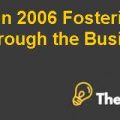Warren E. Buffet Case Study Solution
Abstract
Berkshire Hathaway was founded in the year 1889 in England. It started as Berkshire Cotton Manufacturing and had become the largest textile company in England. During the year 1955, Berkshire Cotton Manufacturing merged with another well-known company Hathaway Manufacturing and formed another company as Berkshire Hathaway. Berkshire Hathaway Inc. is one of the recognized companies in England and Warren E. Buffet is the Chairman and CEO of the company. Buffet primary dealt with investment through acquiring well-known companies and buying shares of many star rated companies.
Berkshire Hathaway started to deal with other portfolio businesses which are insurance, railroad, utilities and energy, manufacturing industrial products, financing, service and retailing. These diverse portfolios have made the company the biggest multinational corporation of America. In the year 2015, on the month of August, Berkshire Hathaway announced for purchasing Precision Castparts Corporation (PCP) which is the supplier of Aerospace parts. The purchasing of PCP was suggested by Warren E. buffet and was considered as one of the largest deals for the company. The issue which was going on every top member’s mind of was whether the acquisition of Precision Cast Parts Corporation (PCP) would be beneficial for the company or would it be a loss.
Introduction
Warren E. Buffet is the Chairman and CEO of Berkshire Hathaway Inc. which is one of the recognized companies in England. Warren E. Buffet is one of the wealthiest men of the world and also recognized for his intellectual genius. He holds a degree of MBA from Columbia University and for his success he always credits his mentor, Benjamin Graham. Warren E. Buffet primary dealt with investment through acquiring well-known companies and buying shares of many star rated companies.
Berkshire Hathaway was founded in the year 1889 in England. It started as Berkshire Cotton Manufacturing which had become the largest textile company in England. The manufacturing cotton of Berkshire accounted for 25% of the U.S. cotton-textile industry. During the year 1955, Berkshire Cotton Manufacturing merged with another well-known company Hathaway Manufacturing and formed another company as Berkshire Hathaway. The firm further expanded by acquiring two insurance companies which are the National Indemnity Company and National Fire Insurance Company which are both located in Omaha.
After acquiring the two insurance companies, Berkshire Hathaway exited from the textile business during the 1980s and started buying many other subsidiaries for diversifying its business. Berkshire Hathaway started to deal with other portfolio businesses which are insurance, railroad, utilities and energy, manufacturing industrial products, financing, service and retailing. These diverse portfolios have made the company the biggest multinational corporation of America.
In the year 2015, on the month of August, Berkshire Hathaway announced for purchasing the Precision Cast parts Corporation (PCP) which is the supplier of Aerospace parts. The purchasing of PCP was suggested by Warren E. buffet and was considered as one of the largest deals for the company. The company purchased PCP’s outstanding shares around $235 per share making an overall bidding of $37.2 billion. For expanding Berkshire Hathaway, the company had purchase various companies such as Heinz, Kraft Duracell and many others for around $70 million.
Problem Statement
After analyzing the case, the issue which was going on every top member’s mind was whether the acquisition of Precision Cast Parts Corporation (PCP) would be beneficial for the company or not. Since this was considered the largest deal for the company paying around $37.3 billion for buying the company. Other issue determined was whether PCP would be willing to sell the company after experiencing high growth of shares by 19.2%, whereas Berkshire Hathaway’s shares moved to 1.1% which was a loss of $4.03 billion.
Analysis
For determining whether the acquisition of PCP would have a positive impact on the company and whether PCP would be willing to share the company after it had a shares market growth of 19.2%, we would conduct the analysis of Berkshire Hathaway and PCP. The SWOT analysis would be conducted on Berkshire Hathaway which consists of strengths, weaknesses, opportunities and threats, whereas Porter 5 forces would be conducted on PCP for examining the external market for Aerospace supplier.Other than that financial analysis would be conducted on the income statement of both the companies.
Warren E. Buffet Harvard Case Solution & Analysis
SWOT analysis
The SWOT analysis would be conducted on the firm Berkshire Hathaway for determining whether it has the necessary strength for persuading the company PCP to sell its business and to determine the opportunity of buying PCP for Hathaway. If PCPis not a suitable acquisition, other opportunity would be measured for the company that would improve its performance......................
This is just a sample partial work. Please place the order on the website to get your own originally done case solution.













